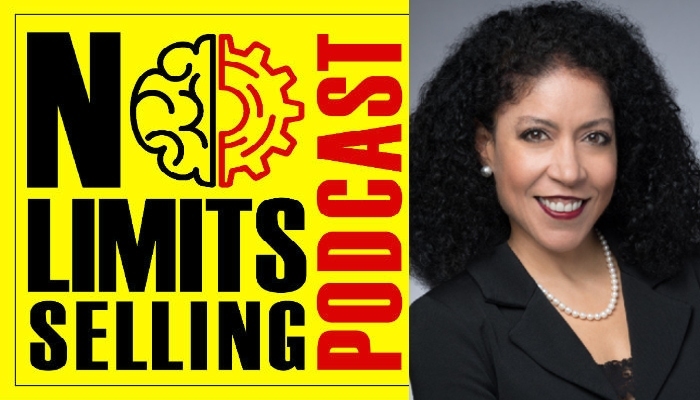Women in Leadership: Rhonda Overby's Journey as CEO of Camera Ready
On Episode 59 of The No Limits Selling Podcast, we have Rhonda Overby, CEO & Board Director Of Camera Ready. Having long been deemed an “impact player”, Rhonda Overby takes a vested interest in achieving the “next level” and beyond. She and the Camera-Ready team EXPAND BRANDS via comprehensive Marketing, Public Relations, and Media Production services.
They reach target audiences via strategic campaigns online, on mobile, on TV, on radio, in print and in-person.
Expertise also includes Crisis Media, Media Training, Speech Writing, Media Buying, Design, Research, and Printing. ...achieving results on-time, on-budget, on point.

Connect With Rhonda:
[EDITOR’S NOTE: This podcast is sponsored by No Limits Selling. It is a fun, fast-paced podcast that delivers hard-fought business advice that you can implement today to improve your sales and performance]
Interested In Our Real Estate Coaching Services? Explore Our Website: Link
Feeling Not Well Today? You Can Use Our Mindset Boosters App To amp Up Your Mood: Link
Find us on Social Media:
LinkedIn | Facebook community | Instagram
Like what do you listen to? Subscribe to our podcast!
Ready to become fearless? We can help you become fearless in 60 days so you accomplish more in your career Schedule A 15 min Call with UmarSummary
Introduction and Background
The podcast features Rhonda Overby, the Chairman, President, and CEO of Camera Ready, Inc. Rhonda is also an actress, which adds a unique perspective to her role in strategic communications. The host, Umar Hameed, opens the conversation by asking Rhonda about her work at Camera Ready, Inc.
Strategic Communications
Rhonda emphasizes the importance of aligning the mission and vision of a company with every touchpoint with the audience, whether internal or external. She gives an example of a client (whose identity is kept confidential for privacy reasons) who needed to refine their message and retarget their audience.
App Development and Marketing
The conversation then shifts to the topic of app development and marketing. Rhonda advises startups to consider the design of their app interface and its user-friendliness. She stresses the importance of differentiating their app from others on the market.
The Importance of Beta Testing and First Impressions
Rhonda and Umar discuss the value of beta testing and the importance of first impressions. Rhonda believes in the value of beta testing versions of technology before they are released to the public. However, she also emphasizes that "you never get a second chance to make a first impression," suggesting that products should be of a certain quality before they are released to the public.
Women in Leadership
In this enlightening episode, we delve into the theme of 'Women in Leadership' with Rhonda Overby, CEO & Board Director of Camera Ready. Rhonda shares her personal journey, highlighting the challenges and triumphs she has faced as a woman in a leadership role. Her insights provide a unique perspective on the importance of empowering women in the business world, fostering innovation, and creating a more inclusive and dynamic corporate landscape.
Conclusion
In conclusion, the podcast with Rhonda Overby, Chairman, President, and CEO of Camera Ready, Inc., provides a comprehensive exploration of strategic communications, emphasizing the importance of aligning a company's mission and vision with its audience interactions. Drawing from her unique background in acting and live television news, Overby underscores the necessity of effective, direct communication and the careful consideration of audience reception in a global context.
Questions & Answers
Who is Rhonda Overby?
What is Camera Ready, Inc.?
What does strategic communication mean?
What advice does Rhonda Overby give for app development and marketing?
What is the importance of beta testing and first impressions according to Rhonda Overby?
How does Rhonda Overby's background in acting and live television news influence her approach to strategic communications?
How can businesses benefit from the insights shared in this podcast?
Don’t miss this opportunity to transform your real estate career with one-on-one coaching. As an experienced real estate coach, I, Umar Hameed, am dedicated to helping you unlock your full potential and achieve your real estate goals. To learn more about who am I and my clients ↓
If you’re ready to take the next step, book an appointment with me today and begin your journey toward success in the real estate industry.
